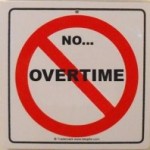By Jim Cline
 In Part One of this two-part series, we identified the growing problems associated with the Internet and its connected social media. Chiefly, we identified the problem associated with the new opportunities presented to public safety employees to be “stupid” in what they say or do on a much grander and more public scale. As we discussed, previous discipline cases addressed how to discipline officers and firefighters for misplaced communications to a narrow audience, such as the gathering of coworkers off-duty at the neighborhood bar. Now the Internet allows employees to event to the world. [Read more…]
In Part One of this two-part series, we identified the growing problems associated with the Internet and its connected social media. Chiefly, we identified the problem associated with the new opportunities presented to public safety employees to be “stupid” in what they say or do on a much grander and more public scale. As we discussed, previous discipline cases addressed how to discipline officers and firefighters for misplaced communications to a narrow audience, such as the gathering of coworkers off-duty at the neighborhood bar. Now the Internet allows employees to event to the world. [Read more…]











